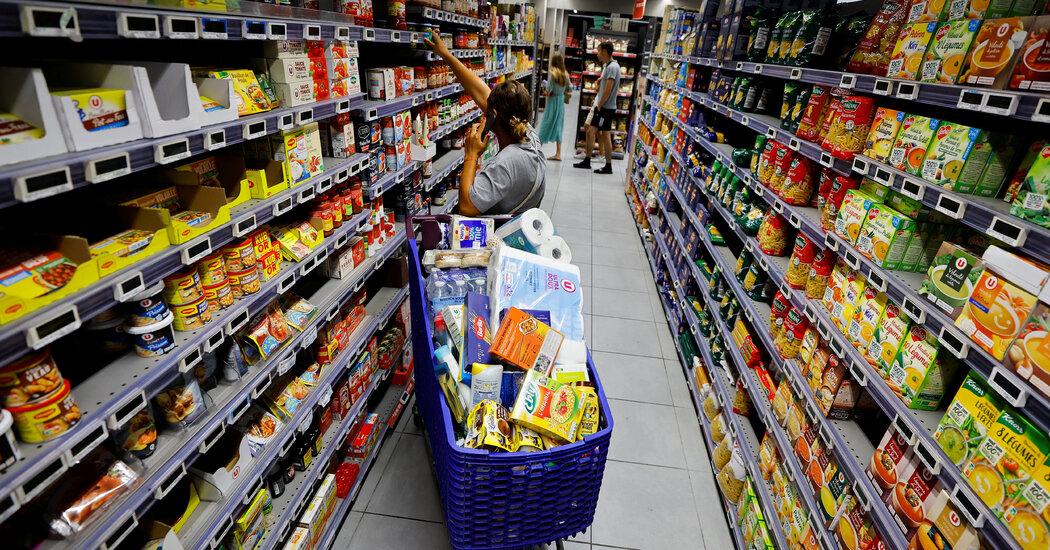
Last week, the United States announced that consumer prices rose by 6.2 percent in the year through September, by one measure. Britain’s inflation rate was 8.8 percent over the same period.
Central banks appear resolutely determined to halt the rise. “Inflation remains far too high and will stay above the target for an extended period,” Christine Lagarde, the president of the European Central Bank, said last week after announcing the bank was raising interest rates by three-quarters of a percentage point for the second time in a row.
The International Monetary Fund has also urged central bankers to stay the course possibly through next year. It noted that “almost half the recent surge in European core inflation remains unexplained by its usual drivers,” suggesting that the war in Ukraine and aftershocks of the coronavirus pandemic were contributing to a new inflationary dynamic.
The Federal Reserve is expected to raise interest rates by three-quarters of a percentage point when policymakers meet on Wednesday. It would be the sixth increase this year. The Bank of England, meeting on Thursday, is also expected to raise rates by the same amount.
However painful higher interest rates may be for consumers and borrowers in the United States, the sting is even sharper in other regions around the world. Higher interest rates attract investors, which pushes up the value of the dollar. For emerging nations with high debt bills denominated in dollars, though, their already heavy burden grows even larger. At the same time, nations that have to import American goods or essentials like energy and food that are often priced in dollars, get much more expensive. Those countries get poorer.
While most economists have urged a hard line on inflation, there are an increasing number of voices questioning whether central bankers are going too far, too fast. Higher interest rates are not going to suddenly increase the supply of oil, wheat and microchips, and may even exacerbate shortages by stunting investment.
There is also fear that efforts to corral inflation will accelerate countries’ slide into recession by choking off investment and raising unemployment. Several analysts said on Monday that they expected growth in the final three months of the year to deteriorate.
Andrew Kenningham, the chief Europe economist at Capital Economics, warned in a report that the eurozone “is heading for a deeper recession and higher inflation than most expect.”